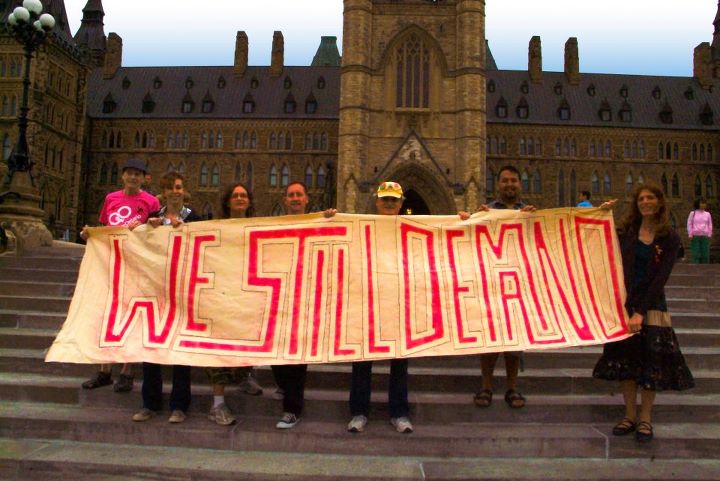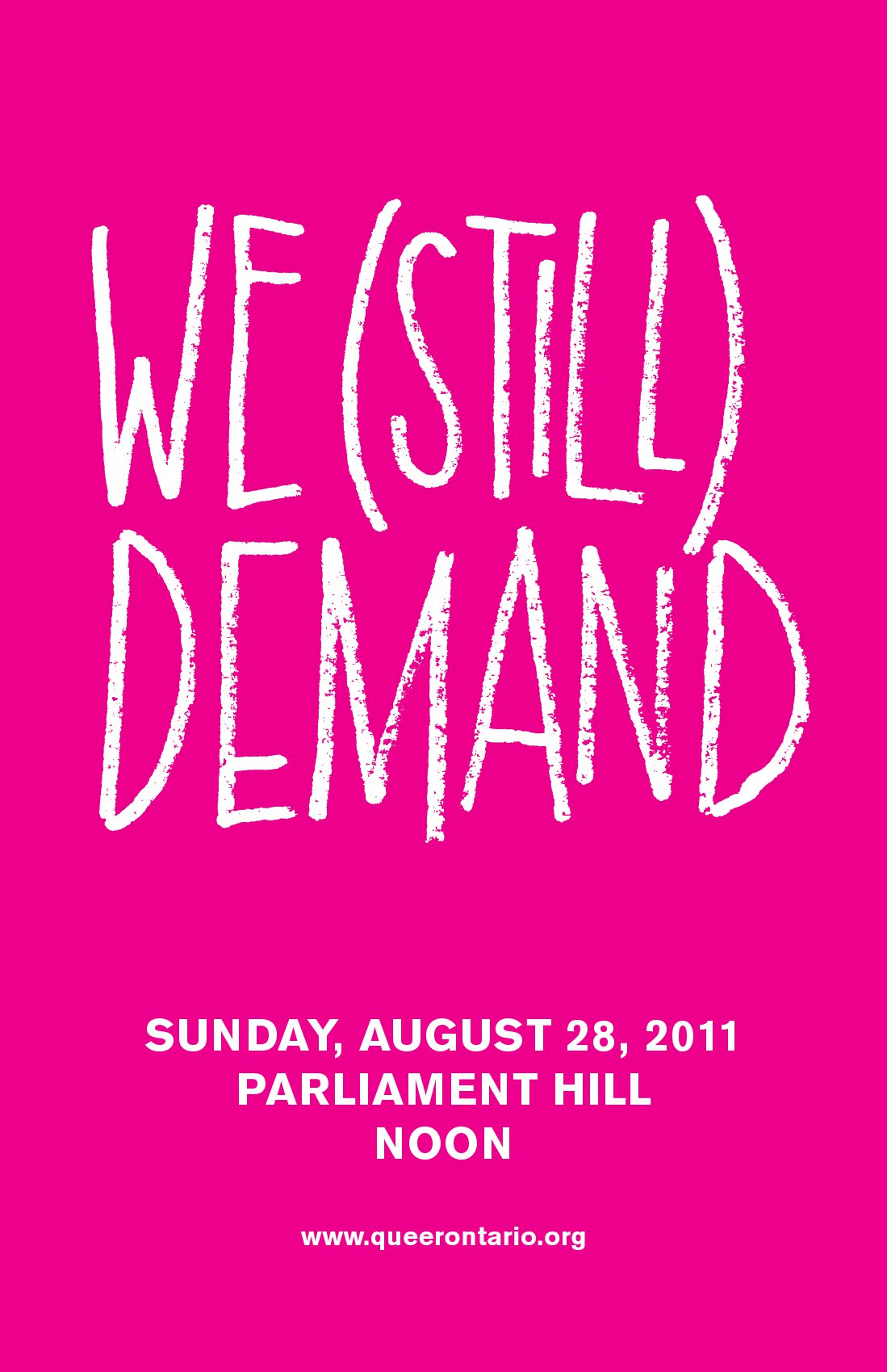On February 21, 2011 Ontario will mark its fourth Family Day—a new Provincial statutory holiday that Premier Dalton McGuinty proclaimed soon after winning a second term in office marking a re-election campaign promise. McGuinty’s announcement of the new holiday was described as an attempt to offset the intensifying conditions of work for many by granting an additional day to be spent with their family.
In a press release McGuinty assures us that he knows these are tough times and, further, that there is nothing more important than family. “There is nothing more valuable to families than time together. And yet it seems tougher than ever to find, with so many of us living such busy lives,” McGuinty said, announcing Family Day on October 11, 2007.
Besides facing a storm of controversy from labour unions and others over conflicting employment agreements and vague implementation plans (federal employees fall outside its jurisdiction) the promotion of a statutory holiday based on family time is heavily predicated on a mainstreamed secular symbolism of “family values.”
This notion of “family values,” long used by social and religious conservatives to deny queer and trans people their civil rights and freedom, is premised on a fundamentally narrow, exclusive, and fixed ideal of family, serving as an ideological traffic cop for the maintenance of a heterosexual reproductive monogamy. Although families can and do provide crucial and vital emotional succor for many individuals, families continue to be a site of violence, inequalities and exclusions for others.
Additional time off work is welcomed by many, yet the proclamation of a statutory holiday marked as “family” time is inevitably situated in a larger context in which families are regulated through state laws, social and institutional norms, and political decisions about the allocation of government funding. McGuinty’s proclamation is premised on the long-held illusion that the maintenance of “traditional family bonds” serves as a resolution to problems individuals face that are actually the result of poor policy decisions and larger economic, social and political forces. In the face of these other realities the convenient nostrum of the family as a “haven in a heartless world” doesn’t pass political muster.
A quick accounting of these problems can return us back to the realities that families and individuals face. In Canada in 2003, more than 75 percent of two-parent households relied on dual incomes. The challenge to single parents balancing paid work, childcare responsibilities and housework, is even more daunting. Additionally, statistics show that living single or in a variety of configurations not recognized in strict legal terms are growing over the past two decades. Feel-good statements are contradicted when we consider some of the real problems facing families and individuals in Ontario at present.
- The March 2007 elimination of federal transfer payments for regulated childcare spaces
- McGuinty’s lack of commitment to develop accessible and affordable childcare alternatives which exacerbate ongoing dearth of subsidized childcare spaces
- Individuals and families subject to changing regulation from neoliberal policies especially since the mid-90s (i.e. welfare, ODSP and workfare policies).
- Lack of human rights protection for people of transgender experience and families that include gender nonconforming children and youth.
- Lack of equal protection in child custody cases for queer and trans parents
- Widespread discrimination and invisibility faced by queer families and their children in government programs and education, etc.
- Lack of support for alternative family forms that are not legally recognized (i.e. polyamorous relations, extended networks, blended, transnational families, etc.)
- Enduringly homophobic and heterosexist social norms about optimal family forms and healthy childrearing
Queer and gender non-conforming individuals and communities have much at stake in how families are presented and discussed in our culture. Historically, we have faced massive forms of legal and social injustice in the way families are imagined and regulated. Although important gains have been made in the area of same-sex marriage and adoption rights, queers face ongoing discrimination and normative social pressure brought to bear whenever queer social life intersects with the arena of childrearing.
As such, the arena of queer family formation and parenting face undue social pressure to accommodate prevailing norms pertaining to children exacerbated by homophobia, heterosexist and cisgendered assumptions in an age of heightened anxiety with respect to child development. As children increasingly become a symbol for the reproduction of safe and secure futures, much social pressure is brought to bear on queer parenting and alternative family forms.
Advancing social justice in the arena of family and childrearing means attending to more fundamental issues. The family as a “private” space continues to be the site of domestic violence, reproduces homophobic, transphobic and cisgendered environments beyond public accountability, while circumscribing who “belongs” within its borders. A biological model of mandatory kinship disallows more voluntary relations from emerging. Children and youth continue to be seen as private parental property preventing the emergence of a more accountable public sphere for empowering young people’s participation.
Both queers and heterosexual people benefit when the conversation about families and parenting include parental practices that highlights diversity, voluntary kinship, open and flexible relations between children and their caregivers, the redistribution of domestic labour, and democratic participation in communities.
The image of strong families is increasingly used to symbolize the safe reproduction of existing social and economic arrangements that serve narrow interests.
The invocation of family values is designed to do some pretty extensive symbolic heaving lifting. And in so doing, serves to distance us from the complex and multidimensional power relations at work in shaping how people experience themselves and their families in broader social, political and economic contexts. We at Queer Ontario seek to revitalize a critical dialogue about fundamental issues that affect the shape of families and intimate relations toward the alleviation of ongoing discrimination and inequalities.
♦

